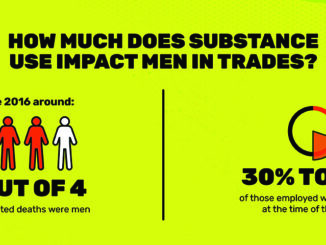
By Kathleen Collins, Government Relations Consultant
The 2023 session concluded on April 23 having passed 475 bills. This was a long session—105 days—that included preparation and passage of the operating, capital, and transportation biennial budgets. The Legislature returned for a special session on May 16 to pass a bill clarifying the drug possession law. Most of the new laws went into effect on July 23, 2023.
Housing bills
Increasing housing options was a major focus of the 2023 session. The Legislature dedicated significant funds for housing projects and passed bills to ease construction requirements. SB 5290 sets time limits for approving building permits. SB 5058 exempts one- and two-story buildings with 12 or fewer units from the definition of multi-unit residential buildings. SB 5258 provides more recourse for builders dealing with condominium construction defect claims. And HB 1110, the middle housing bill, will allow multi-unit housing to be constructed in residential areas and along transit routes.
Construction bills
There are three new construction laws of interest to SMACNA contractors.
SB 5528 will require a five percent requirement on private sector projects. The retainage is required for both general contractors and subcontractors. General and subcontractors can use a bond instead of cash. A subcontractor who completes work before the entire project is complete can have the retainage released unless there is a dispute about whether the work is complete. The law was effective as of July 23 and should not impact existing contracts.
HB 1050 expands the public works apprenticeship requirement to all municipal governments, except housing authorities. Starting July 1, 2024, municipal public work contracts that are $2 million or more must have at least 15% of the labor hours performed by apprentices. The dollar threshold reduces to $1 million by July 2028.
SB 5268 will allow public agencies to use a statewide small works roster to hire contractors. The roster will be developed by the state and will be categorized by type of specialty. Any contractor wanting to be on the state-wide roster will have to designate if they are women and/or minority owned, veteran-owned, or a small business. The new law also defines how public owners will use the roster to solicit bids for different dollar levels of project work.
Energy efficiency
Two new laws on energy efficiency upgrades for the public sector will be of interest to SMACNA contractors.
HB 1777 creates a new type of performance-based contracting as an alternative for public entities to finance energy efficiency equipment and energy service work. The new law applies to all state agencies, school districts, public universities, and municipalities. The new “energy as a service” contract allows the public entity to contract for energy efficient equipment and services that will be held and provided by the contractor with the option to use on-going service payments or other financial arrangements. At the end of the financing term of the contract, equipment ownership may be transferred back to the public entity. A public entity using an “energy as a service” contract must ensure that using this type of contract does not directly result in the loss of positions for their current employees and must offer training in preventative maintenance of the energy equipment and services. SMACNA contractors interested in using “energy as a service” contracts should review all the details of the new law.
HB 1390 deals with district energy systems. The 2019 Clean Building law applies to the buildings served by district heat, including the state capital campus, some universities, and privately owned complexes. HB 1390 will require owners of state-owned district energy systems to develop a decarbonization plan to replace their fossil fuel sources but will provide more time to comply with the Clean Building mandate. The new law also allows owners of private district heating systems to use the alternative compliance pathway defined in the law. SMACNA contractors interested in district heat system work should review the new law.
In addition to these bills, the state capital budget will leverage federal infrastructure funding to provide several million dollars for weatherization, energy retrofits in public buildings, and transition to high efficiency electric equipment.
Human resources
Below are three new human resource laws of interest to SMACNA contractors.
SB 5111 provides that both union and non-union construction employees who work less than 90 days on a job will be paid for unused accrued sick leave. Payment for the unused sick leave will be issued at the next scheduled pay period after their departure. SMACNA and NECA oppose the bill, but nearly all other construction contractor groups were neutral.
SB 5217 overturns a 20-year-old referendum that disallowed the imposition of state ergonomic regulations. The new law will allow Labor and Industries to develop an ergonomic regulation for one occupation group a year starting with those occupations with the highest incidence of musculoskeletal injuries.
SB 5123 prohibits screening for cannabis in preemployment drug testing unless the test is required by federal law, such as a CDL driver license, or the applicant will work in a safety-sensitive position where impairment while working presents a substantial risk of death. The employer must identify safety-sensitive positions prior to the applicant’s application for employment. The bill does not prevent drug testing for cannabis once the employee is on the job.
Natural gas
A bill that did not pass during session was HB 1589, Puget Sound Energy’s (PSE) decarbonization bill. The utility was proposing several regulatory changes to allow it to dramatically reduce their use of natural gas in the coming years. A key feature of the bill was to stop all new gas connections for residential and commercial connections effective June 30, 2023. Several interest groups including builders and restaurants strongly opposed this provision of the bill and the bill failed to move out of the Senate.
PSE defended the ban provision in their bill, arguing that the 2021 Energy Code changes effectively preempted continued use of natural gas heating and other appliances in both residential and commercial structures. The new 2021 Code, which went into effect July 1, instead requires the use of electric powered heating and appliance equipment with few exceptions. The groups that opposed HB 1589 filed a lawsuit against the Energy Code changes after session. A recent decision in a federal lawsuit may provide impetus to their legal claims.
In 2019, the City of Berkeley in California imposed the same ban on new natural gas connections as was in the PSE bill. The City was sued by the California restaurants and others alleging the ban violated the federal Energy Policy and Conservation Act, a federal law that expressly preempts state and local regulations concerning energy use of many natural gas appliances including those used in households and restaurants. The case has been working its way through the courts and on April 17 the federal 9th Circuit Court of Appeals agreed with the plaintiffs and struck down the City of Berkely’s ban.
On May 25, the State Building Code Council held an emergency meeting where they voted to delay the implementation of the 2021 codes until October 29 to allow them time to assess the impact of the federal Court’s decision on the natural gas related code changes. It is likely the Building Code Council will try to devise another approach to curtailing natural gas use, but given the federal Court decision, it will be hard to approach it by regulating equipment. PSE may also reassess their approach to decarbonizing their system.
SMACNA will send you links or additional information for any of these new laws upon request. You can access the information directly by going to leg.wa.gov Click on Bill Information and type in the bill number. ▪



